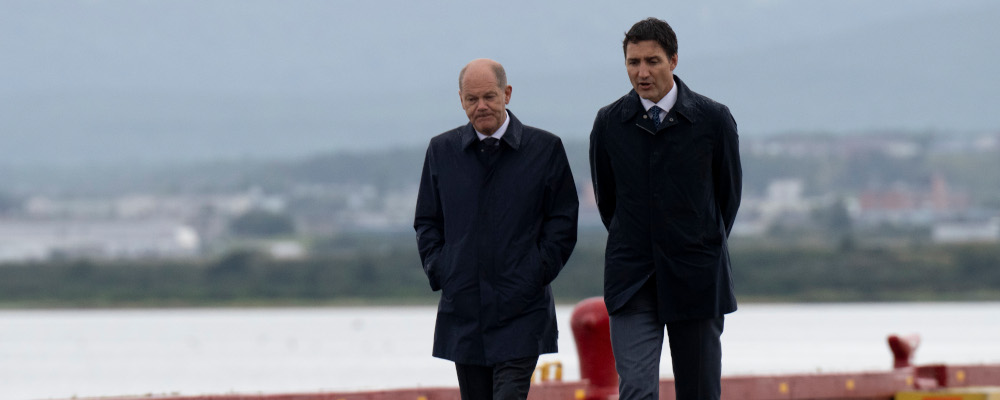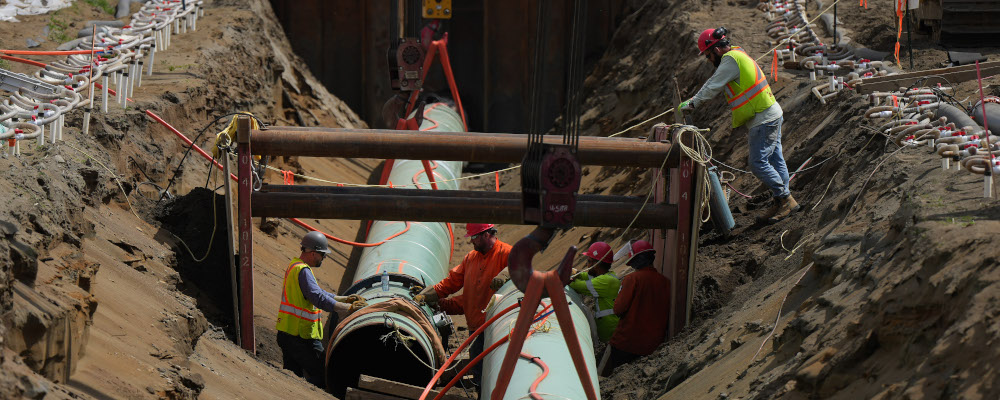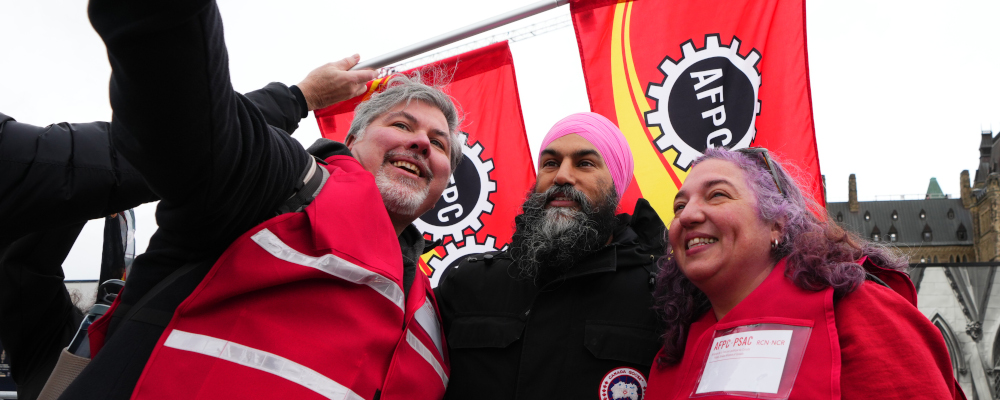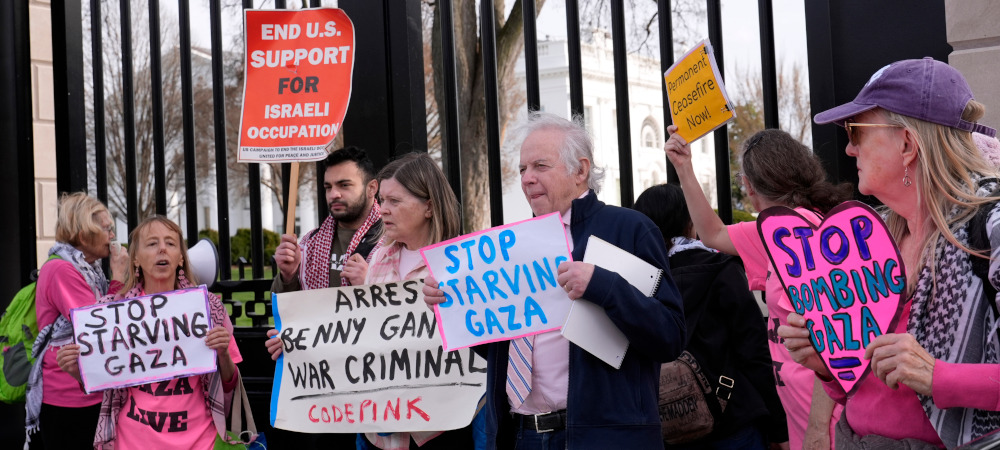Since Russia tried to take over all of Ukraine two years ago, Europe has made major strides in gradually weaning itself off Russian gas. But, its appetite for Canadian natural gas hasn’t gone away, whatever the Trudeau government might like to think.
This March, Greek Prime Minister Kyriakos Mitsotakis himself said so during his Canadian visit. He even made it clear his country was “very interested” in Canadian liquefied natural gas (LNG), and not simply for geopolitical reasons, but environmental ones too.
“As fast as we go in terms of our renewable penetration, we will still need a reliable source of electricity and for us, for Greece, we don’t have nuclear. We’re moving completely away from coal so that leaves natural gas for the foreseeable future as a significant source of energy for the production of electricity,” he told CTV’s Question Period.
“Canada is a country with which we share so many values,” he added, confirming that Greece and other European countries would much rather buy their energy from a fellow liberal democracy like Canada, rather than the world’s autocrats.

Yet buying energy from dictators is precisely what Germany was left to do after Chancellor Olaf Scholz returned empty-handed from a frantic trip to Canada two years ago, looking for replacements for Russian gas.
“As Germany is moving away from Russian energy at warp speed, Canada is our partner of choice,” Scholz said at the time. “For now, this means increasing our LNG imports. We hope that Canadian LNG will play a major role in this.”
Yet Prime Minister Trudeau rebuffed Scholz, claiming there was no “business case”—even as countries like South Korea, Japan, Ukraine, Poland, and Latvia all contradicted his conclusion. For Japan and Poland in particular, these calls for more Canadian LNG came from the very top.
Instead, Canada sold Scholz some hydrogen. The current federal government, along with environmental groups like the Pembina Institute, view a long-term commitment to fossil fuels like LNG as worsening climate change significantly. Supporting LNG exports to Europe would also require infrastructure investments into ports on the east coast – matching the one in Kitimat, B.C. Such support is unlikely to play well politically with the Liberal Party’s environment base.
Meanwhile, the German chancellor signed an LNG deal with autocratic Qatar instead of democratic Canada. Having bought 55 percent of its gas from Russia before Ukraine was invaded, Germany has now quit Kremlin gas cold turkey – but still has to buy from authoritarian states and Norway, rather than Canada.
Today, the Liberal government looks to be making the same mistake on another crucial resource file—the critical minerals the free world also needs.
Canada has got the minerals
It’s not that the government hasn’t been thinking about the minerals it could sell to its allies. Natural Resources Canada actually has a strategy document listing the critical minerals and rare earths Canada has in abundance and how they could be a part of new global supply chains. Many of these are minerals Canada’s allies either don’t have at all or have in short supply—including aluminum, copper, nickel, potash, tin, lithium, and zinc. Prime Minister Trudeau has even expressed some willingness to export them.
Canada is among the world’s top five producers for nine of the 31 critical minerals named in the strategy–with the US taking the vast majority of Canadian critical mineral exports at $37.6 billion in 2022. China was in a distant second with just $3.9 billion. Europe meanwhile, takes even less from Canada–and currently remains dependent on authoritarian China to a large extent for many of these minerals.
Beyond the Canadian LNG other countries require for their present energy needs, these Canadian critical minerals represent what the world—and particularly the free world—needs for the energy of the future.
Many of these minerals are found in solar panels—a market China currently has cornered. Almost 90 percent of the world’s solar panels come from China—leaving Canada and the rest of the democratic world dangerously exposed to the geopolitical whims of an authoritarian adversary, as we choose to rely more on solar power. Should China ever attack Taiwan, our ability to respond decisively as the free world could be held hostage to our energy transition needs. That is if free societies don’t bring key elements of it back home.
Canada plays an integral role in this “friendshoring” of the democratic world’s critical mineral supply. European Commission vice-president Margrethe Vestager told German business newspaper Handelsblatt as much in 2022, calling for Europeans to be ready to pay a “national security premium” to buy less from aggressive, authoritarian countries, and more from allies and friends sharing liberal democratic values.
“Canada has almost all the raw materials we need. But the companies there need a long-term perspective from us in order to invest,” she said.
As Vestager suggested, it takes two countries to do the critical mineral trade tango—and European money is clearly needed.
“We now face a rapidly changing world, with supply chains pushed to breaking point. We can only ensure security and prosperity through decisive action from governments to support the industry to navigate these challenges,” said Bernd Schäfer, the CEO and managing director of EIT RawMaterials in Berlin, in an interview with The Hub in Berlin. His organization attempts to secure the supply of critical raw minerals for the European industry and is largely funded by the EU. “We see an enormous need for innovative funding solutions for partnership projects between European and Canadian businesses and mechanisms to identify and fast-track projects of mutual strategic importance,” he said.

Yet even if Canada has a strategy on paper, experts say high political buy-in—and a sense of how urgent the problem is—is still missing on the Canadian side. That political buy-in is especially needed to secure European investment.
“It could take Trudeau coming to Europe and specifically saying ‘Hey, I have minerals,’” said Loyle Campbell, a Canadian research fellow in the Center for Climate and Foreign Policy at the German Council on Foreign Relations, in Berlin. “The Trudeau government needs to take political leadership over this and keep driving it forward aggressively.”
Campbell compared the Canadian government’s efforts on critical minerals with its recent pet project to export hydrogen. He said while there has been movement on the hydrogen file, the mineral file leaves much to be desired.
“Hydrogen has gotten quite a lot of support and a lot of attention and a lot of promotion among the [Canadian] diplomatic staff,” he said. “Hydrogen and critical minerals both started from a baseline of zero. There wasn’t much activity going on and we needed to get them both going much faster. So why are there MOUs coming out now on hydrogen, and much less action between the countries that need critical minerals and Canada?”
Campbell points to what he calls Canada’s “special responsibility” to help the rest of the democratic world with its energy and mineral needs—particularly in light of Canada shirking its global responsibilities in other areas, including defence spending that remains well below NATO targets.
“The scope and scale of the energy transition and the energy security crisis really require you to be all on board for more than just your favourite [resource],” he said. “You also need to be realistic about what your allies are asking for. You need to say, ‘What do you need and how can I help?’ rather than saying, ‘This is what we want to promote.’” “Rather than having political favouritism towards hydrogen, really go in on what’s strategically necessary.”
On critical minerals, as well as LNG, Canada is punching well below its potential. As Heather Exner-Pirot recently pointed out in these pages, collapsing energy and resource investment has stymied Canadian economic growth. The responsibility for that lies at the Trudeau government’s feet.
Without a government that will change course on its indifference—or even antipathy—to Canada’s resource sector, these domestic economic mistakes will soon become wider geopolitical ones.
Recommended for You

Ginny Roth: J.D. Vance, Pierre Poilievre, and how they slice their economic pie

David Polansky: As President Biden leaves the race, will the Democratic Party hodgepodge hold?

Malcolm Jolley: Cool Chardonnays for warm days

Five Tweets on Western Canada’s devastating wildfires











